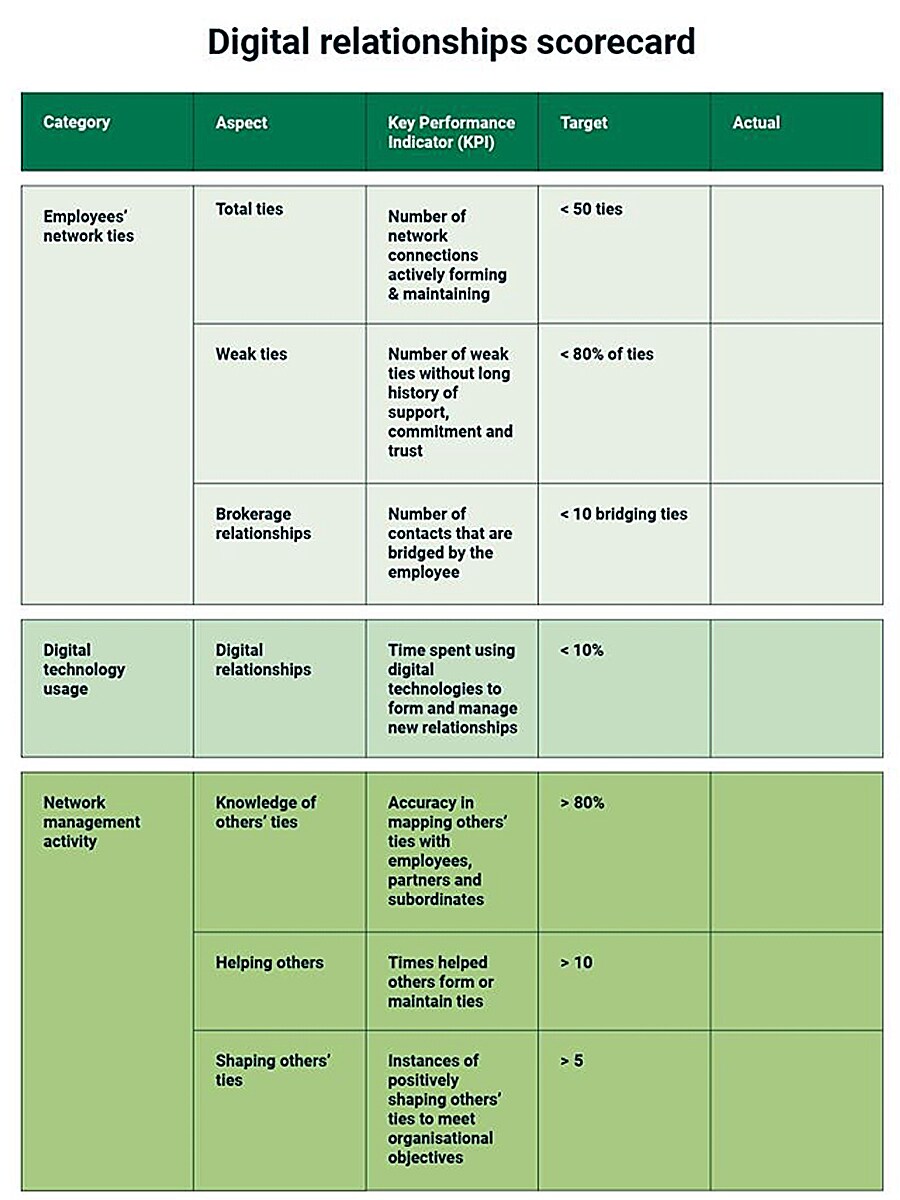How networks actually harm organisations
Digital technologies create digital relationships that limit companies ability to innovate and change


It’s long been understood that social networks, the likes of LinkedIn and Facebook, but also tools such as Whatsapp and Slack, enable individuals to collaborate and accomplish important tasks. As a result, firms typically rely on collaboration through networks to help them innovate and change.
Yet, INSEAD professor Jason Davis argues that networking to boost one’s social capital can actually hurt firms if the resulting “digital relationships" only help individuals pursue private objectives. The conversation expands on the themes covered in his recent book Digital Relationships: Network Agency Theory and Big Tech, itself based on over a decade of research in big tech companies such as Google, Amazon and Tesla, in America, Asia and Europe.
Although these findings may seem counterintuitive or surprising to those who believe in social capital and the individual benefits of networking, they can be best understood as an example of an emerging theory that Davis terms “network agency theory". The key idea is that the networks that are in the best interest of individuals are not always aligned with the needs and interests of the firm.
Davis identifies a number of issues that can emerge from wrong networking behaviour. He then gives examples that demonstrate how the adoption of digital technology has served to amplify and even strengthen these problems:
Davis illustrates this through the example of a real-life tech company that had embraced networking principles so wholeheartedly that it lead to productivity and quality issues. Perhaps most tellingly it proved impossible to conduct a top level managers’ meeting as everyone’s schedules were already filled with other networking activities.
This example also demonstrated that even when addressed, the problem has a tendency to return. This was an issue identified across the research. Managers would move to address the problem and urge employees to form less ties, but the same network problems would re-emerge due to the clear benefits of networks for individuals.
However, actions can be taken. To institute organisation-wide change, top executives need to introduce a company-wide mandate to shift the culture and practices. In particular, human resources teams can play a vital role by becoming more strategic about networks at key stages of the employee journey, from hiring and socialisation to appraisals and promotions. At each stage the need to maintain smaller and stronger networks can be reinforced.
To help with this process, Davis has developed a scorecard which assesses the network behaviours employees undertake so managers can then provide the right incentives. At the same time HR teams can further assist individuals through specific training on how to achieve more focused networking skills.
The impact of digital technologies on organisations and how they operate continues to grow, with the rise of AI promising to transform the way that we work. This is equally true when it comes to the capacity to network: AI can both amplify network agency problems but also give managers more tools to deal with issues when they arise.

Jason P. Davis is an Associate Professor of Entrepreneurship and Family Enterprise at INSEAD. He also serves as the Programme Director for Digital Strategy & Leadership and Leading Digital Transformation and Innovation executive education programmes at the school.
First Published: Dec 07, 2023, 10:57
Subscribe Now